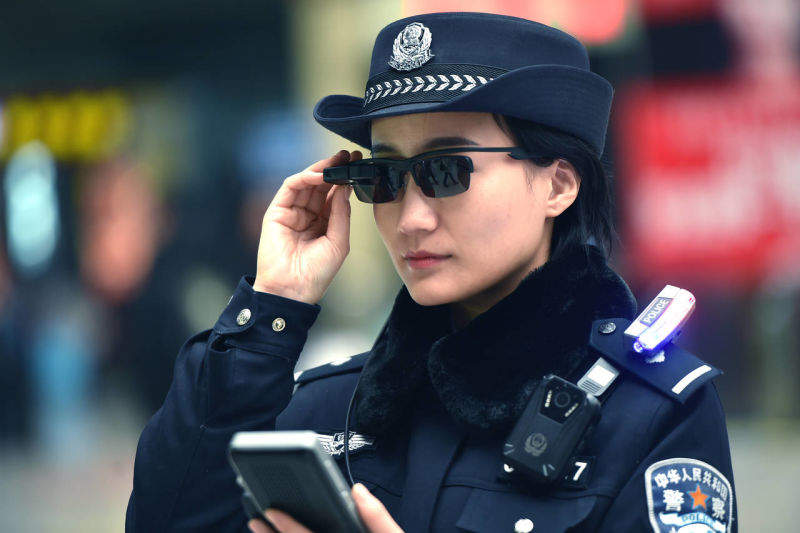
Railway police in Zhengzhou are the first in China to use facial recognition glasses to screen passengers.
Security personnel at Zhengzhou East Railway Station donned the new accessories ahead of the Chinese New Year travel rush to help verify passengers’ identities, spot impostors—and even catch suspected criminals.

Discover B2B Marketing That Performs
Combine business intelligence and editorial excellence to reach engaged professionals across 36 leading media platforms.
The black-tinted glasses, made by Beijing-based LLVision Technology, contain a camera which takes a precise measurement of a person’s face when the wearer looks at them.
That measurement is then compared to a database of individuals whose measurements have previously been recorded, with information shown on a hand-held device connected to the glasses.
An app on the device helps the police officers establish whether the suspect is on the run from the police, and even their recent Internet history.
Facial recognition software often struggles when running on CCTV cameras because of blurry image quality and the potential to lose track of suspects. The glasses, by contrast, give the police the chance to capture a clear image from any angle, determine a match within seconds, and then take immediate action on the ground.

US Tariffs are shifting - will you react or anticipate?
Don’t let policy changes catch you off guard. Stay proactive with real-time data and expert analysis.
By GlobalDataAccording to the Chinese state media, the sunglasses have already helped police capture seven suspects.
While China is rolling out many new surveillance technologies, it is not the only country to embrace emerging security technologies.
In 2017, South Wales Police became the first police force in the UK to make an arrest using Automated Facial Recognition (AFR) software. Since then, there have been hundreds of positive matches, with over 50 charges and 12 arrests made using the technology.
Recently, three men were arrested in separate incidents at the Principality Stadium during Wales’ Six Nations opener using AFR.
“This facial recognition technology will enable us to search, scan and monitor images and video of suspects against offender databases, leading to the faster and more accurate identification of persons of interest,” said Assistant Chief Constable Richard Lewis.
“The technology can also enhance our existing CCTV network in the future by extracting faces in real time and instantaneously matching them against a watch list of individuals, including missing people.”
Opponents, however, point to the amount of false positives encountered, and privacy concerns about how data is used—particularly in China, which already draws criticisms for its intrusive surveillance techniques.
With the International Data Corporation (IDC) forecasting the global datasphere will grow to 163 zettabytes (a trillion gigabytes) by 2025—ten times the 16.1ZB of data generated in 2016—there are growing calls for a unified approach to data protection.
The EU has taken steps to address this with the General Data Protection Regulation (GDPR), which comes into force on 25 May. The regulation seeks to protect the data of EU residents, including how foreign companies process their data. Failure to comply will result in penalties of up to 4% of worldwide turnover.
However, the regulation does not apply to the processing of personal data for national security activities or law enforcement within the EU.





